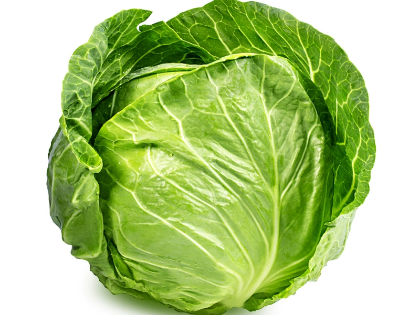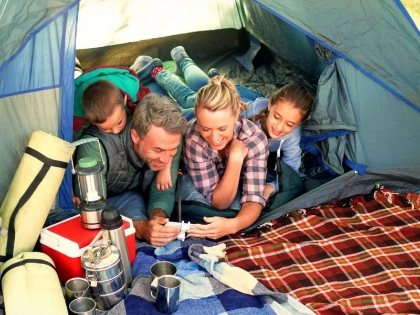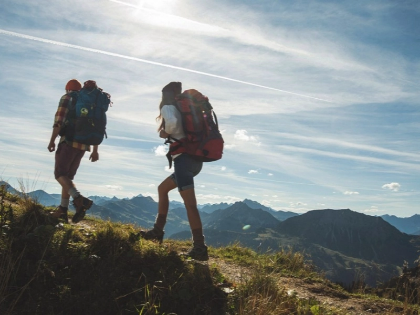What Are the Two Types of Camping?
An excellent way to spend more time in nature is to go camping. You can unwind in the open air and escape the tension of everyday life with its assistance. Camping is, for many outdoor enthusiasts, the ultimate way to get in touch with nature. However, did you realize that there are two distinct kinds of camping?
Camping in a tent
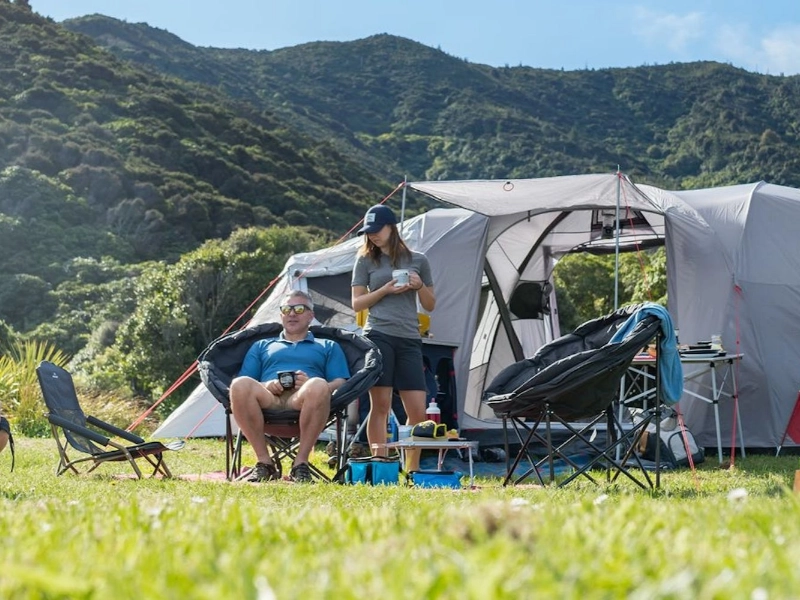
Traveling by backpack
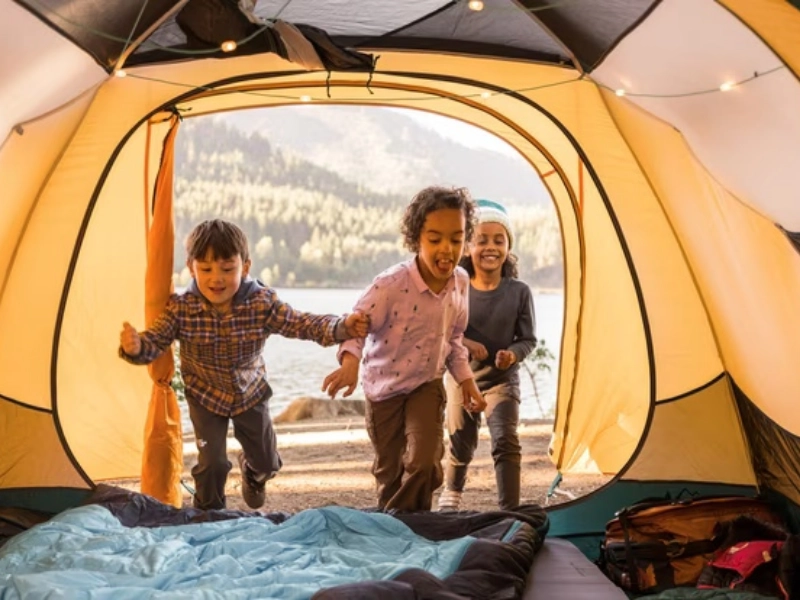 When you go backpacking, you genuinely bring everything you need. This covers your food, cooking supplies, sleeping bag, and tent. It's considered the ultimate outdoor adventure travel destination and a minimalist's paradise.
You can travel the world on a tight budget because your lodging costs are minimal. Due to their exposure to a wide range of cultures and experiences, backpackers typically have a more accepting attitude toward life.
Car camping is another option if miles of hiking while carrying your bedroom on your back seems a little too rough. It typically happens at campgrounds that are dedicated for that purpose and may come equipped with a double-burner stove and a cooler full of delicious food. If you have kids or just prefer not to lug around a bulky backpack, this is a great alternative. But backpacking is an entirely different experience—one that is both very gratifying and thrilling. It also enables you to detach yourself from the daily grind and re-establish a peaceful relationship with the natural world.
When you go backpacking, you genuinely bring everything you need. This covers your food, cooking supplies, sleeping bag, and tent. It's considered the ultimate outdoor adventure travel destination and a minimalist's paradise.
You can travel the world on a tight budget because your lodging costs are minimal. Due to their exposure to a wide range of cultures and experiences, backpackers typically have a more accepting attitude toward life.
Car camping is another option if miles of hiking while carrying your bedroom on your back seems a little too rough. It typically happens at campgrounds that are dedicated for that purpose and may come equipped with a double-burner stove and a cooler full of delicious food. If you have kids or just prefer not to lug around a bulky backpack, this is a great alternative. But backpacking is an entirely different experience—one that is both very gratifying and thrilling. It also enables you to detach yourself from the daily grind and re-establish a peaceful relationship with the natural world.
Camping out in the wild
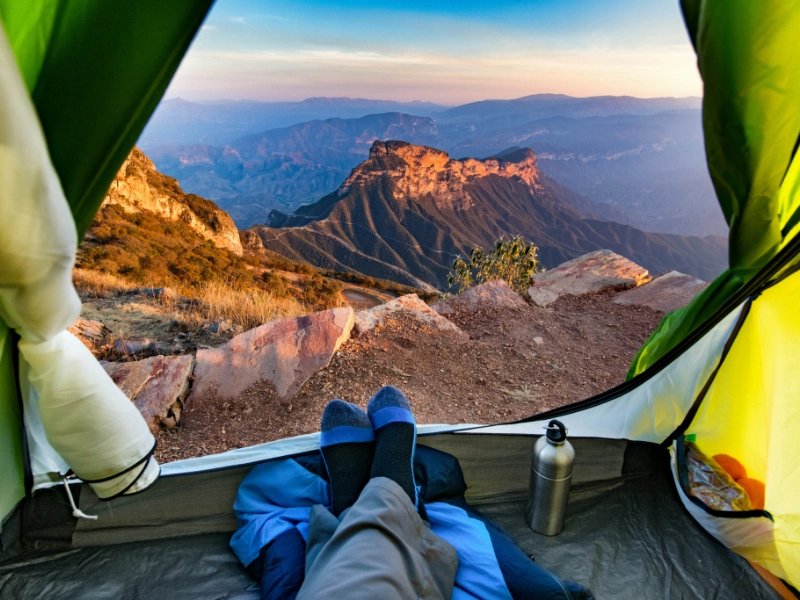 Glamping, a play on the words "glamorous" and "camping," is generally camping in a structure such as a yurt, tipi, or wagon covered in canvas, as opposed to typical tent camping. These buildings typically offer more comfortable restrooms and bedding than a tent.
Glamping is popular because it allows you to take in the scenery without sacrificing comfort. It's perfect for people who are new to camping or who want to try something different from what they're used to. Glamping can include anything from opulent tents with actual beds to charming wooden huts and even treehouses, depending on where you travel. Apart from offering a cozy sleeping area, these lodgings frequently provide distinctive experiences that are unavailable in hotels. For instance, some glamping locations have movable kitchens, so you can prepare your own food rather than relying on boil-in-the-bag fare. This facilitates your sense of homeliness when you're camping in the outdoors.
Glamping, a play on the words "glamorous" and "camping," is generally camping in a structure such as a yurt, tipi, or wagon covered in canvas, as opposed to typical tent camping. These buildings typically offer more comfortable restrooms and bedding than a tent.
Glamping is popular because it allows you to take in the scenery without sacrificing comfort. It's perfect for people who are new to camping or who want to try something different from what they're used to. Glamping can include anything from opulent tents with actual beds to charming wooden huts and even treehouses, depending on where you travel. Apart from offering a cozy sleeping area, these lodgings frequently provide distinctive experiences that are unavailable in hotels. For instance, some glamping locations have movable kitchens, so you can prepare your own food rather than relying on boil-in-the-bag fare. This facilitates your sense of homeliness when you're camping in the outdoors.
Camping in the Wilderness
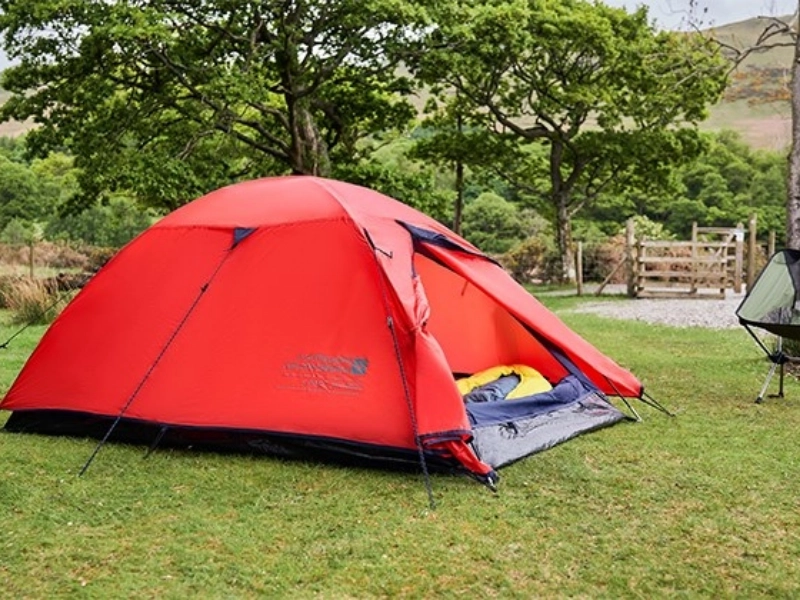 For individuals who want to camp away from the hassles and throngs of typical campgrounds, wilderness camping is an excellent alternative. This kind of camping lets you spend the night under the stars in far-off places, whether you choose to drive or hike to your campsite. Make sure you're following the land management organization's "leave no trace" guidelines and that it's acceptable to camp there by confirming with them.
Prepare to leave your campground in better shape than when you arrived by burying rubbish, creating a hole for your toilet, and staying away from high-risk areas. Additionally, keep in mind that spent toilet paper might contaminate nearby water sources, so pack it all away. Along with the necessary food and supplies for art, journaling, and travel games, you should also pack water, a sleeping bag, and a pad. Backcountry camping is permitted on Bureau of Land Management (BLM) and National Forest lands.
For individuals who want to camp away from the hassles and throngs of typical campgrounds, wilderness camping is an excellent alternative. This kind of camping lets you spend the night under the stars in far-off places, whether you choose to drive or hike to your campsite. Make sure you're following the land management organization's "leave no trace" guidelines and that it's acceptable to camp there by confirming with them.
Prepare to leave your campground in better shape than when you arrived by burying rubbish, creating a hole for your toilet, and staying away from high-risk areas. Additionally, keep in mind that spent toilet paper might contaminate nearby water sources, so pack it all away. Along with the necessary food and supplies for art, journaling, and travel games, you should also pack water, a sleeping bag, and a pad. Backcountry camping is permitted on Bureau of Land Management (BLM) and National Forest lands.
